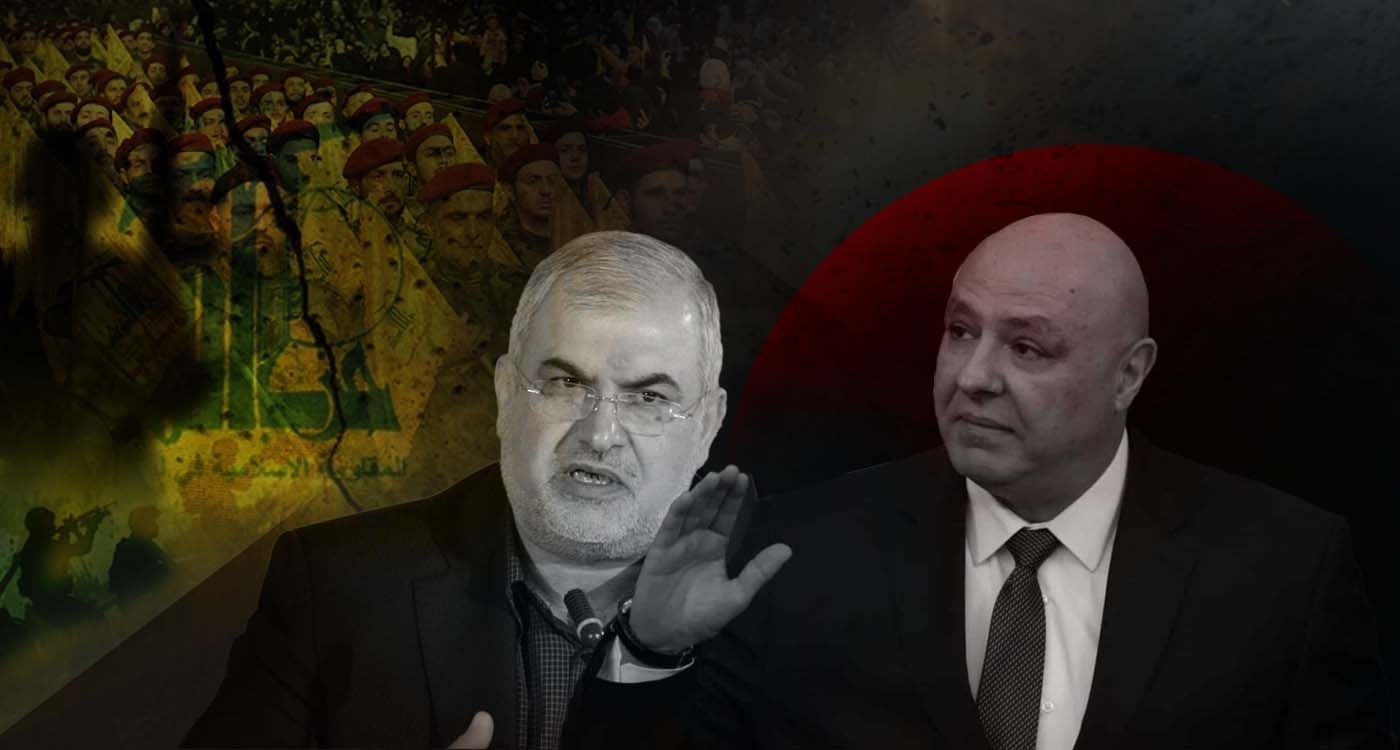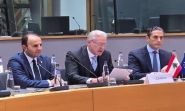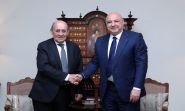
In one week, the Cabinet is scheduled to meet — unless delayed — to review an army plan implementing the government’s decision to confine all weapons to state control. The coming days promise significant developments: it includes US Senator Lindsey Graham’s visit to Beirut with envoys Morgan Ortagus and Thomas Barrack, an anticipated meeting between Speaker Nabih Berri and President Joseph Aoun and the UN Security Council’s vote on UNIFIL’s mandate.
Intense contacts are underway between official circles and the Amal-Hezbollah duo to ease tensions over what Hezbollah denounced as a “sinful decision” by Prime Minister Nawaf Salam’s government. Mediators say relations between President Aoun and the Shia duo have been strained, although Hezbollah insists it does not wish to cut ties despite deep resentment.
Sources close to the duo say their dispute with Aoun stems from his sudden departure from an earlier understanding that the weapons issue would remain under his authority. Instead, the matter was moved to the Cabinet, which adopted a decision to confine arms to the state and set a binding deadline, despite the walkout of the duo’s ministers.
“The remedy is to reverse the decision,” they stress. “We did not want to reach the point of no return, which is why our ministers did not resign. We had expected the debate to be postponed, not concluded with a deadline.”
A political source adds that trust between Baabda and the duo must now be rebuilt. While Hezbollah recognizes the president’s role as leader of all Lebanese, it had hoped he would proceed more cautiously.
Yet, he decided in the absence of the duo’s ministers, and Prime Minister Salam’s insistence on pressing ahead with the session heightened concerns. Amal and Hezbollah also accuse the presidency of succumbing to US-Saudi pressure, while Hezbollah has labeled Salam “Lebanon’s Golani,” despite his past positions against Benjamin Netanyahu at the Special Tribunal for Lebanon.
Meanwhile, Ain al-Tineh is refusing to follow Hezbollah’s escalation and threat-driven tactics. Sources say Berri rejected mobilizing the streets to avoid any confrontation with the army, noting that “one street would meet another.”
‘Spent Currency’
Pro-sovereignty circles dismiss the party’s civil war warnings as outdated and “spent currency,” urging Hezbollah to abandon such rhetoric and acknowledge its defeat after the collapse of its regional axis with the fall of Assad, Iran’s key ally. Despite this, Iran continues to treat Hezbollah as a leverage card, even as the party’s regional influence has lost its clout.
President Aoun, according to informed sources, said, “I waited more than seven months before taking action. The Shia duo did not move. In every meeting, I urged the urgent implementation of state-exclusive control over weapons, after setting a year-end deadline in my oath speech, in line with the Taif Agreement, the Constitution, the ceasefire agreement and UN Resolution 1701. The response I received was simply to be patient and wait for Israel to implement the ceasefire.”
“Faced with mounting domestic and international pressure, and with political forces insisting that the Cabinet address the weapons file, I acted amid accelerating regional developments. Washington offered support to reinforce the ceasefire in the South, and I seized the opportunity, turning the American proposal into a Lebanese initiative after coordinating adjustments with Berri,” he said.
“We had to choose between prosperity or self-destruction, risking Lebanon’s international isolation and the loss of aid. I informed friendly and allied countries, as well as the United Nations, and requested that the US envoy ensure Israel’s compliance with withdrawal, prisoner releases and cessation of violations.”
Inevitable
Mediations, both domestic and international, have sought to rebuild bridges between Baabda and the Shia duo. President Aoun reportedly said, “I am open to discussing any issue within the framework of the state.” In response, MP Mohammed Raad, speaking through Brigadier General Andre Rahal, Aoun’s advisor, warned that implementing the decision as is could lead to a clash. “You have your plans, we have ours. Let us dialogue to reach a solution,” he said.
Sources indicate that, before the army finalizes its weapons handover plan, a meeting between Aoun and Berri could take place, potentially ahead of the September 2 Cabinet session to discuss the plan. The duo has reportedly been reassured by the army’s approach, which is security-focused, politically coordinated and implemented step by step without the use of force. The army has emphasized that it will not tolerate street confrontations and calls for a political decision to oversee the process. Even Hezbollah is reportedly exercising caution to avoid clashes, recognizing that the state, political institutions and public opinion no longer back its armed presence, which has lost legitimacy.
The handover of weapons is now inevitable, beginning with Palestinian arms, without strict adherence to deadlines. “No weapons outside state authority will be tolerated after 2025, and parliamentary elections cannot take place while such arms remain,” a senior pro-sovereignty figure said. He added that the government’s decision represents a transformative moment, one that was unimaginable under the previous reliance on informal understandings, which had failed.
“The decision has been made, and the government must implement it. Political forces are expected to support the enforcement of the Taif Agreement. Those seeking amendments will be invited, after the weapons handover, to a national dialogue, where we will present a comprehensive, developmental proposal that respects pluralism and is protected by law within the unity of the nation. Alarmist warnings of civil war are outdated, as the conditions for such a conflict no longer exist. There is neither domestic nor international backing for it, and Hezbollah has been exposed following its war with Israel.”




Comments